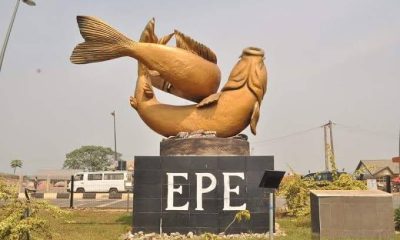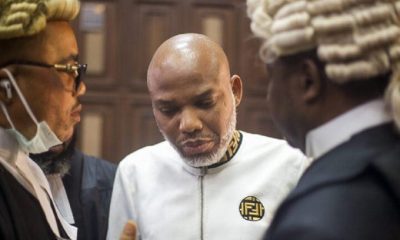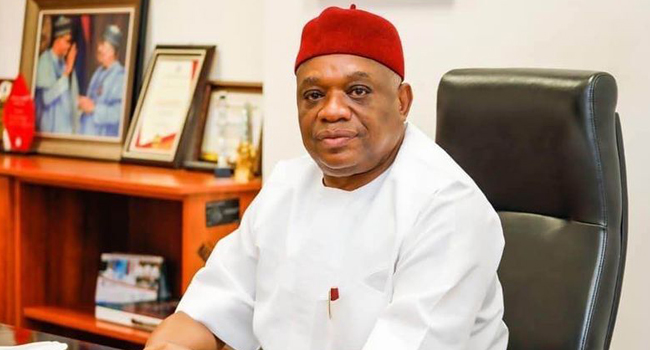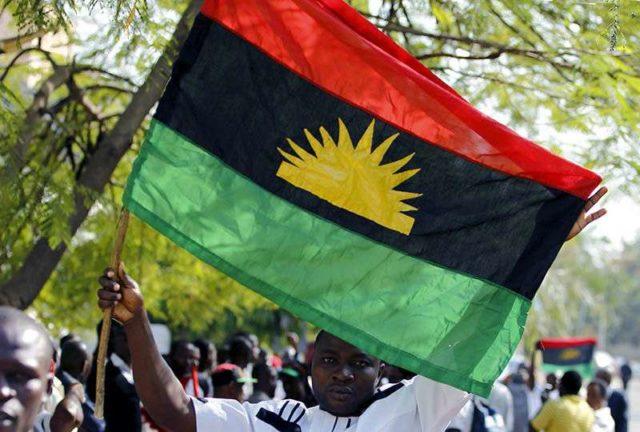History
Christopher Okigbo – The Biafran Poet

In September 1967, Christopher Okigbo, once described as ‘Africa’s most lyrical poet of the twentieth century,’ was killed fighting for Biafra’s independence.
The Sunday Times described his death as ‘the single most important tragedy of the Nigerian civil war’.
The passionate, tortured and dramatic quality of his life was typified by the way Okigbo died. Widely regarded as part of the greatest literary triumvirate of modern Nigeria, along with Wole Soyinka and Chinua Achebe, the death of Okigbo elevated him to cult status among subsequent generations of African writers.
Okigbo was born in the town of Ojoto, about 10 miles (16 km) from the city of Onitsha in the state of Anambra, on 16 August 1932. During the heyday of British colonial rule in Nigeria, his father was a teacher at Catholic missionary schools, and Okigbo spent his early years going from station to station.
Okigbo had an affinity, considering his father’s devout Christianity, and came to believe later in his life that the spirit of his maternal grandfather, a priest of Idoto, the god of Igbo, was reincarnated in him. In the river of the same name that flows through the town of Okigbo, Idoto is personified, and the “water goddess” features prominently in his work.
Heavensgate (1962) opens with the lines:
-
- Before you, mother Idoto,
- naked I stand,
- Before you, mother Idoto,
while in “Distances” (1964), he celebrates his final aesthetic and psychic return to his indigenous religious roots:
- I am the sole witness to my homecoming.
Okigbo held positions as a teacher, librarian at the University of Nigeria, private secretary to Nigeria’s federal minister of research and information, and West African editor of Transition, an African literary journal, after earning a bachelor’s degree in Western classics at the University of Ibadan in 1956.
At the 1966 Festival of the Negro Arts in Dakar, he was awarded first prize for poetry, but he refused the prize because he felt that writing must be judged as good or poor, not as a result of a particular ethnic group or race.
Three volumes of poetry were written by Okigbo during his short lifetime: Heavensgate (1962), Limits (1964), and Silences (1965). Under the title Labyrinths, with Direction of Thunder, his collected poems appeared posthumously in 1971. Okigbo was closely acquainted with ancient Greek and Latin authors as well as contemporary poets like T.S. Eliot and Ezra Pound, and even the mythology of Igbo (Ibo).
READ ALSO: History: Philip Effiong, the man who surrendered Biafra to Nigeria
His poems are highly personal renderings of his experiences, his thoughts on the role of the poet, and other themes that are richly symbolic. He weaves depictions of his native Igbo countryside’s trees, animals, and streams into works that are often mysterious, allusive, or difficult. Despite this, his verse displays meticulous craftsmanship and is deeply evocative.
Of all Nigerian authors, Okigbo became the most commonly translated. In 1986, a volume titled Collected Poems was published.

Christopher Okigbo – The Biafran Poet
The Nigerian crisis came to a head in 1966. Okigbo, who at the time resided in Ibadan, moved to eastern Nigeria to await the outcome of the turn of events that resulted on 30 May 1967 in the secession of the eastern provinces as independent Biafra. Living in Enugu, he worked with Achebe to create Citadel Press, a new publishing house.
Okigbo’s efforts to launch a publishing company in Enugu with the novelist Chinua Achebe came to an abrupt end after his death while fighting in the war for Biafran independence from Nigeria.
With Biafra’s secession, Okigbo immediately joined the military of the new state as a volunteer, field-commissioned major. An experienced soldier, during a big drive by Nigerian troops against Nsukka, the university town where he found his voice as a poet, he was killed in battle, and he vowed to protect himself with his life.
Earlier in July, the Nigerian Air Force destroyed his hilltop house in Enugu, where many of his unpublished writings (perhaps including the beginnings of a novel) were written, in a bombing raid. Pointed Arches, an autobiography in verse that he mentions in a letter to his friend and biographer, Sunday Anozie, was also destroyed as an account of life’s encounters and letters conspiring to sharpen his artistic imagination.
However many of his unpublished papers are known to have survived the war. Inherited by his daughter, Obiageli, who founded the Christopher Okigbo Foundation in 2005 to perpetuate his legacy. Chukwuma Azuonye, Professor of African Literature at the University of Massachusetts Amherst, Boston, who supported the foundation in nominating them in January 2006, catalogued the papers.
Although he wrote for ten years (1956 – 1966) and died at the age of thirty-five, when he was just beginning to reach maturity in his craft, Christopher Okigbo remains one of Africa’s leading poets.
Don’t forget to share your thoughts in the comment section.
Advertise or Publish a Story on EkoHot Blog:
Kindly contact us at [email protected]. Breaking stories should be sent to the above email and substantiated with pictorial evidence.
Citizen journalists will receive a token as data incentive.
Call or Whatsapp: 0803 561 7233, 0703 414 5611
















